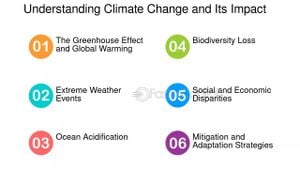The International Criminal Court (ICC) has made headlines by issuing arrest warrants for Israeli Prime Minister Benjamin Netanyahu and former Defense Minister Yoav Gallant, citing serious human rights violations during the current conflict with Hamas. These warrants signal a dramatic escalation of international scrutiny over Israel's military operations in Gaza, which have resulted in substantial civilian casualties.
The ICC's charges against Netanyahu and Gallant include crimes against humanity and war crimes, particularly linked to the denial of basic necessities such as food, water, and medical supplies to the Palestinian population. This denial is alleged to have occurred between October 8, 2023, and May 20, 2024, during which the situation deteriorated significantly.
Following the announcement, reactions poured in from various quarters, with U.S. President Joe Biden labeling the warrants as "outrageous" and emphasizing the United States' unwavering support for Israel. Biden’s comments reflect the complicated dynamics of global politics, where legal actions against Israeli leaders can quickly intersect with longstanding diplomatic ties.
The aftermath of the arrest warrants has sparked contrasting reactions globally. Some leaders expressed discontent about the ICC's decision, viewing it as politically motivated, whereas human rights advocates welcome the court's actions as necessary steps toward accountability for alleged war crimes.
Israeli officials have denounced the ICC, claiming the court acts as part of a broader agenda targeting the state of Israel. Netanyahu's government maintains it has conducted military operations with necessary precautions to distinguish between combatants and civilians, attributing civilian casualties to Hamas's actions.
Notably, the ICC also issued a separate warrant for Mohammed Deif, the commander of Hamas's military wing, indicating the court's intention to pursue legal actions against all parties involved in the hostilities and not solely focus on Israel's military actions.
Since the eruption of the latest conflict, Israeli airstrikes have reportedly led to the deaths of nearly 45,000 Palestinians, with figures from the United Nations estimating the actual toll might be significantly higher. The international community is now left grappling with the stark reality of these numbers and their implications for justice and accountability.
The ICC's decision marks the first significant step toward holding Israeli officials accountable for their actions, which many believe contravene international humanitarian laws. This landmark move has the potential to reshape discussions surrounding the Israel-Palestine conflict, especially as it may affect future diplomatic engagements.
Looking back, this isn't the ICC's first encounter with Israel. The court has been under criticism for its prolonged processes and has previously faced pushback from Israeli officials who argue the court has been weaponized for political purposes. Since 2015, when Palestine became a member of the ICC, Israel has consistently rejected the court’s jurisdiction, complicate matters with protests and diplomatic maneuvers to undermine the court's authority.
There remains considerable skepticism about whether these warrants will lead to any concrete actions or arrests, particularly considering Israel's stance of non-cooperation with the ICC. Should Netanyahu or Gallant step foot within any of the 124 member states of the ICC, they could face arrest, but this scenario remains highly unlikely provided the backing they receive from allies like the United States.
Despite challenges, the issuance of these warrants can be interpreted as laying the groundwork for future accountability. It serves to underline the significance of international law and human rights, asserting the need for oversight and responsibility, especially when civilian lives are at stake.
While Netanyahu's administration insists it operates under lawful military engagement, the ICC’s move adds pressure on Israel to reassess its tactics and humanitarian claims. With global attention focused on the situation, it's clear the international community is unwilling to ignore actions deemed egregious, regardless of the state involved.
The coming months will likely see increased scrutiny on Israel's military strategies, not just from international bodies but also from civil society worldwide. This case exemplifies the heightened interest and contention surrounding the Israeli-Palestinian conflict, where historical narratives and contemporary politics converge, complicate meaningful dialogue.



